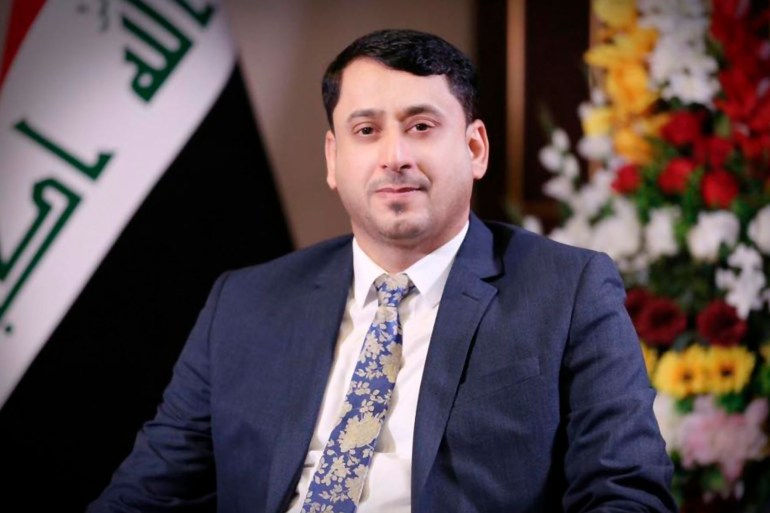Today, Tuesday, Iraq and Saudi Arabia signed a memorandum of understanding in the field of electrical interconnection between the two countries, at a time when Baghdad and the rest of the provinces are suffering from a near-total interruption in electricity supply, caused by the decline in gas reaching power plants.
The memorandum of understanding was signed in the capital, Riyadh, in the presence of Saudi Energy Minister Prince Abdulaziz bin Salman, and Secretary-General of the Iraqi Council of Ministers, Hamid Al-Ghazi, as part of the Saudi-Iraq Business Forum.
Al-Ghazi expressed his hope that the electrical connection with Saudi Arabia will be implemented as soon as possible (Iraqi press)
And the Iraqi News Agency quoted Al-Ghazi as saying that the electrical connection with Saudi Arabia will meet Iraq's need for electricity, expressing his hope that this connection will be completed as soon as possible.
He stressed that the partnership with Riyadh in this field has economic returns, as well as creating competition among other countries in the field of multiple energy sources.
Al-Ghazi added that "the Iraqi government's approach aims to multiply energy sources. Since 2020, it has set its priorities in various fields, including the electrical connection, and the beginning was with Jordan and Turkey, and today with Saudi Arabia, and the global trend towards energy and the necessity of linking between the countries of the Arab and regional countries."
Officially... Iraq and Saudi Arabia sign a memorandum of understanding in the field of electrical interconnection under the guidance of the leaderships of the two countries.
pic.twitter.com/OxuLgyxln4
- Shaho Al-Qaradaghi (@shahokurdy) January 25, 2022
For his part, Iraqi Minister of Electricity Adel Karim said that "the Iraqi market is open to Saudi companies," noting that "this project is the first step for cooperation, and this will be the first stage for a group of projects."
He pointed out that "this connection will be completed in a year and a half or two years," according to what was reported by the Iraqi News Agency.
In turn, the Saudi Energy Minister said that "the memorandum came in accordance with a complete study of the electrical interconnection project, achieving economic returns, entering renewable energy, and strengthening the electricity market between the two countries."
He pointed out that "what connects Saudi Arabia with Iraq is greater than electricity. There is blood, social ties, a common history, and a common presence, both between Iraqi and Saudi families," noting the Iraqi government's cooperation in the field of oil and gas and in the "OPEC Plus" system, describing it as the most successful historically.
The Saudi minister stressed that there are promising opportunities in the Saudi-Iraqi electrical interconnection project.
Reasons for power outages
The Iraqi governorates - especially the capital, Baghdad - are witnessing a near-total power outage after the loss of 7600 megawatts of electrical power production.
And about the reasons for the great power outage, the spokesman for the Iraqi Ministry of Electricity, Ahmed Moussa, stated - in an interview with Al-Jazeera in a previous bulletin - that this is due to the reduction of national gas supplies by 50% due to bad weather, and Iran reducing its gas supplies to Iraq from 50 million cubic meters per day. To about 8 million only, which led to the limitation of loads and the suspension of many obstetric units in production plants, which negatively affected the processing hours and the provision of electricity to citizens.
Iran justified the reason for the suspension of its supply lines to Iraq by delaying the payment of due financial dues, in addition to that it is going through a peak season and needs more energy.
Moussa called on the Ministry of Finance to pay the debts owed by Iraq due to the import of Iranian gas, because the matter affected a lot, and reduced the hours of processing for the citizens.
Iraq currently produces 15,000 megawatts of electricity, much less than the 30,000 megawatts needed to meet its needs.

